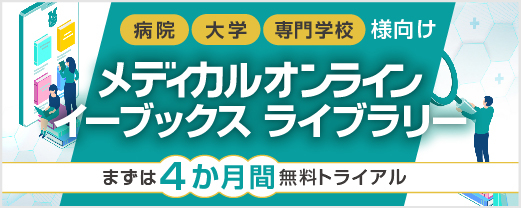アブストラクト
Japanese
| Title | 救命救急センターICUにおいて患者のDNAR (Do Not Attempt Resuscitation) を決断した家族の体験に関する研究 |
|---|---|
| Subtitle | 原著 |
| Authors | 石塚紀美 |
| Authors (kana) | |
| Organization | 1東京医科歯科大学大学院 保健衛生学研究科 先端侵襲緩和ケア看護学分野 博士 (後期) 課程, 2東京女子医科大学病院看護部 |
| Journal | お茶の水看護学雑誌 |
| Volume | 14 |
| Number | 1/2 |
| Page | 15-31 |
| Year/Month | 2020 / 3 |
| Article | 原著 |
| Publisher | お茶の水看護学研究会 |
| Abstract | 「要旨」救命救急センターICUでDNARを決断した家族の体験を明らかにした. 8家族10人に診療録調査・面接調査を行い, 質的記述的に分析した. その結果, 家族は患者が【命の危険にさらされ, 事の重大さに動揺し不安を抱き】, 【生きて欲しい一心で処置の同意書にサインをする】が, 患者の状態から【死を予感し, 受診させなかった自分を責める】ことをした. そして【急で不確かな状況下で決断せねばならず苦悩】し, 【命に関わる決断に際し, 情報や医療者との連携を求め】, 【患者の情報や反応から現状と予後を推測】し, 【患者のこれまでの人生や人間らしさを問い】, 【医療者からの同意が後押しとなり】決断をしていた. 決断後に, 亡くなった患者の家族は, 【決断の良し悪しはわからない】が, 【患者が居ないことを実感し, 自分中心の生活へ変えていく】ようになった. 命を取り留めた患者の家族は, 【患者が命を取り留めたからこそ生じる様々な思いを抱き】, 【元の状態には戻れない患者の存在意義を見出そうとする】ことや【患者への自責の念を自分自身のために整理しようとする】ことに努めていた. 家族は看護師に対し【生死の狭間にいる患者中心のケアを望む】一方で, 【医療者の一言が家族の自責や後悔の軽減に繋がる】, 【重症感が漂う中で, 患者家族を支える看護を実感】していた. DNARを決断する家族の不確かさが埋められ, 自責の念や決断時の苦悩が軽減できるよう, 支援を行う必要がある. |
| Practice | 看護学 |
| Keywords | 救命救急センター, DNAR, 代理意思決定, 家族, 看護支援, Critical care, Do Not Attempt Resuscitation (DNAR), Surrogate Decision-Making, Family, Nursing care |
English
| Title | A study on families that experienced surrogate decision-making of DNAR (Do Not Attempt Resuscitation) for patients in the Department of Emergency and Critical Care Medicine. |
|---|---|
| Subtitle | Original article |
| Authors | Kazumi Ishizuka1,2) |
| Authors (kana) | |
| Organization | 1)Doctoral Course Student, Graduate School of Health Care Sciences, Tokyo Medical and Dental University, 2)Tokyo Women's Medical University Hospital |
| Journal | Journal of the Ochanomizu Association for Academic Nursing |
| Volume | 14 |
| Number | 1/2 |
| Page | 15-31 |
| Year/Month | 2020 / 3 |
| Article | Original article |
| Publisher | The Ochanomizu Association for Academic Nursing |
| Abstract | [ABSTRACT] The aim of this study was to clarify the experiences of families that underwent surrogate decision-making of Do Not Attempt Resuscitation (DNAR) in the Intensive Care Unit (ICU). Interviews with and medical record reviews of 10 participants from eight families were conducted. The families "felt that the patient's life was in danger and were upset and anxious about the serious situation," "signed various consent forms in hopes that the patient would be saved," and "predicted death and blamed themselves for not seeking a doctor." Families "were distressed about the sudden and uncertain situation in which they had to make the decision," and "sought information and cooperation with medical professionals about the decision." Moreover, families made the decision based on "affirmation from medical professionals" after "considering the patient's status and prognosis, based on the patient's medical records and responses" and "discussing the patient's life and dignity." After the decision, bereaved families reported that they "did not know if the decision was good or bad" but "accepted the farewell and focused on their own lives." Families of patients who were saved experienced "complex emotions from the patient's resuscitation" and tried to "find meaning of existence in the irrecoverable patient" and "handle their sense of responsibility for the patient." Throughout the process, families "desired patient-centered care between life and death," felt that "a word from medical professionals reduced their feelings of responsibility and regret," and "appreciated the nursing care for patients and families in the serious atmosphere that they were in." Support for DNAR decision making needs to be provided so that the uncertainty of families that must undergo the process can be eased and feelings of distress and self-responsibility can be reduced. |
| Practice | Nursing |
| Keywords | Critical care, Do Not Attempt Resuscitation (DNAR), Surrogate Decision-Making, Family, Nursing care |
- 全文ダウンロード: 従量制、基本料金制の方共に770円(税込) です。
参考文献
- 1) Miller JJ, Morris P, Files DC, Gower E, Young M. Decision conflict and regret among surrogate decision makers in the medical intensive care unit. Journal of critical care. 2016; 32: 79-84.
- 2) 坂本佳鶴恵. 現代日本の死生観 -末期がん患者の死の「受容」と死生観をめぐって. お茶の水女子大学人文科学研究. 2013; 9.
- 3) 厚生労働省. 人生の最終段階における医療に関する意識調査, https://www.mhlw.go.jp/toukei/list/dl/saisyuiryo_a_h29.pdf.
- 4) 真弓俊彦, 竹村春起, 志水清和, 他, 終末期類似状態傷病者のCPA搬送の現状. 日本臨床救急医学会雑誌. 2017; 20(1): 10-17.
- 5) Tilden VP, Tolle SW, Nelson CA, Fields J. Family decision-making to withdraw life-sustaining treatments from hospitalized patients. Nursing research. 2001; 50(2): 105-15.
残りの32件を表示する
- 6) Azoulay E, Pochard F, Kentish-Barnes N, et al. Risk of post-traumatic stress symptoms in family members of intensive care unit patients. American journal of respiratory and critical care medicine. 2005; 171(9): 987-94.
- 7) 石塚紀美, 井上智子. 救命救急領域における家族の代理意思決定時の思いと看護支援の実態. 日本クリティカルケア看護学会誌 2015; 11(3): 11-23.
- 8) 谷島雅子, 中村美鈴, 救急看護師が認識するDNAR(Do Not Attempt Resuscitation)の患者とその家族の特徴および家族に対する看護実践. 日本救急看護学会雑誌. 2015; 17(2)35-44.
- 9) 飯塚裕美, 井上智子. 緩和優先医療(Comfort Measures Only)を提案された集中治療室入室中患者の家族の体験と看護支援の検討. お茶の水看護学雑誌 2013; 7(2): 16-24.
- 10) 清水玲子, 中村美鈴, 平山美紀, 他. 救急医療において延命治療の代理意思決定を行った家族の体験. 関西国際大学研究紀要. 2018; 19: 45-55.
- 11) 横堀潤子, 井上智子, 佐々木吉子. 救急医療での積極的治療継続の断念に関する患者家族の体験と看護師・医師の認識. 日本救急看護学会雑誌 2012; 14(1): 10-20.
- 12) 上澤弘美, 中村美鈴. 初療で代理意思決定を担う家族員への関わりに対して看護師が抱えると困難と理由. 日本クリティカルケア看護学会誌. 2013; 9(1): 6-18.
- 13) 桑原美香, 藤浪千種, 森一恵. 救急初療に勤務する看護師の代理意思決定支援における困難な状況. 日本看護学会論文集: 急性期看護. 2018; 48: 3-6.
- 14) 谷島雅子, 中村美鈴. DNAR(Do Not Attempt Resuscitation)を選択した入院患 者の家族に対する救急看護師の実践. 自治医科大学看護学ジャーナル. 2013; 11: 5-13.
- 15) 森山美香, 伊東美佐江. クリティカルケア領域におけるDo-Not-Attempt-Resuscitationに関する文献検討 -日本と米国との比較-. 日本看護研究学会雑誌. 2017; 40(5)823-836.
- 16) 総務省 消防庁(2018). 平成30年版救急救助の現況. https://www.fdma.go.jp/publication/rescue/items/kkkg_h30_01_kyukyu.pdf.
- 17) Cook I, Kirkup AL, Langham LJ, Malik MA, Marlow G, Sammy I. End of Life Care and Do Not Resuscitate Orders: How Much Does Age Influence Decision Making? A Systematic Review and Meta-Analysis. Gerontology & geriatric medicine. 2017.
- 18) 服部友紀, 宮部浩道, 富野敦稔, 他. 超高齢者に対する救命救急医療・集中治療の現状. 日本救命医療学会雑誌. 2015; 29: 19-25.
- 19) Sandelowski. Whatever happened to qualitative description? Research in nursing & health. 2000; 23(4): 334-40.
- 20) Yvonna S. Lincoln, Egon G. Guba. Naturalistic Inquiry. Sage Publications, Newbury Park, California, 1985.
- 21) 橋田由吏, 大森美津子. 救急重症患者家族の思いと行動 搬入前・初療時・入院後. 日本クリティカルケア看護学誌. 2006; 1(3): 46-59.
- 22) J.W. Worden, 山本力(訳). 悲嘆カウンセリング: 臨床実践ハンドブック, 誠信書房, 東京, 2011.
- 23) Wong P, Liamputtong P, Koch S, Rawson H. Barriers to regaining control within a constructivist grounded theory of family resilience in ICU: Living with uncertainty. Journal of clinical nursing. 2017; 26(23-24): 4390-4403.
- 24) Iverson E, Celious A, Kennedy CR, et al. Factors affecting stress experienced by surrogate decision makers for critically ill patients: implications for nursing practice. Intensive Critical Care Nursing. 2014; 30(2): 77-85.
- 25) White DB, Ernecoff N, Buddadhumaruk P, et al. Prevalence of and Factors Related to Discordance About Prognosis Between Physicians and Surrogate Decision Makers of Critically Ill Patients. Journal of the American Medical Association. 2016; 315(19): 2086-2094.
- 26) C.M. Parkes, 桑原治雄・三野善央(訳). 死別: 遺された人たちを支えるために, メディカ出版, 大阪, 2002.
- 27) Robert A. Neimeyer, 鈴木剛子(訳). 「大切なもの」を失ったあなたに -喪失をのりこえるガイド単行本, 春秋社, 東京, 2006.
- 28) 坂口 幸弘, 悲嘆学入門 -死別の悲しみを学ぶ, 昭和堂, 京都, 2010.
- 29) Nunez ER, Schenker Y, Joel ID, et al. Acutely Bereaved Surrogates' Stories About the Decision to Limit Life Support in the ICU. Critical Care Medicine. 2015; 43(11): 2387-2393.
- 30) Heyland DK, Cook DJ, Rocker GM, et al. Decision-making in the ICU: perspectives of the substitute decision-maker. Intensive Care Medicine. 2003; 29(1): 75-82.
- 31) 縦山定美. 救急領域における患者の延命治療に対する代理意思決定を担う家族への看護支援の重要度と実践度の看護師の認識. 横浜創英大学研究論集. 2017; 4: 1-12.
- 32) Gillies J, Neimeyer R, Loss, Grief, and the Search for Significance: Toward a Model of Meaning Reconstruction in Bereavement. Journal of Constructivist Psychology. 2006; 19: 31-65
- 33) 坂口幸弘, 恒藤 暁, 柏木 哲夫, 他. 遺族の感情表出が精神的健康に及ぼす影響 -感情表出は本当に有効な対処方法なのか?-. 死の臨床. 2002; 25: 58-63.
- 34) Leske JS. Internal psychometric properties of the Critical Care Family Needs Inventory. Heart Lung. 1991; 20(3): 236-44.
- 35) 辰巳有紀子, 羽尻充子, 中村尚美, 他. ICU患者家族のニーズの抽出とニーズ測定尺度の開発. 日本集中治療医学会雑誌. 2005; 12(2): 111-118.
- 36) Majesko A, Hong SY, Weissfeld L, White DB. Identifying family members who may struggle in the role of surrogate decision maker. Critical Care Medicine. 2012; 40(8): 2281-2286.
- 37) Detering KM, Hancock AD, Reade MC, Silvester W. The impact of advance care planning on end of life care in elderly patients: randomised controlled trial. British Medical Association. 2010; 23; 340: c1345.



